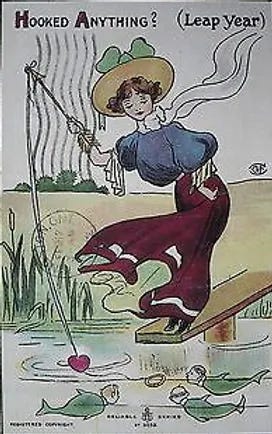The ancients had it so tricky. First of all, they had to decide whether to use a solar calendar or a lunar one. And, whichever they chose, there were always a few extra pesky minutes hanging around at the end of the year. It meant the calendar got out of synch and needed some mechanism to make the calendar catch up with the motion of the earth.
Julius Caesar had a go at it and added an extra month to the ten that Rome had used previously. And, shy retiring type he was, he named the month July after himself. Not to be outdone, his heir Octavius also added an extra month. But he’d already changed his name to Augustus hence the month was named August. Good job really as if it had been Octavus it might have been confused with October. These two extra narcissistic months explain why the last four months of the year still keep their original Roman names of seventh month, eighth, ninth and tenth months.
Despite the Caesars’ best efforts, the sun had an irritating habit of going its blithe old way and the calendar fell behind. Julius’ calendar assumed the year was 365.25 days long. Yet, as all my readers will be aware, it is really 365.2425 days long. Yikes!
This may not seem a lot and for sixteen hundred years, people happily lived with the slow but steady drift. Finally, in October 1582, Pope Gregory XIII took the bull by the horn, leapt in and issued a papal bull introducing a new calendar. Not every country introduced it immediately. Most Roman Catholic countries adopted it within a couple of years. Protestant countries, however, resisted for more than a century.
Great Britain, hostile to what some thought of as Papist chicanery, refused to change until 1752 by which time the calendar had drifted 11 days apart from the rest of the world. The government gave in and adopted the Gregorian calendar. It meant that September 2, 1752 was followed by September 14, 1752.
There was a lot of unhappiness about this, particularly from some traditional Tory supporters. It’s been claimed that there were riots with people demanding their stolen days back but this seems to have been a myth.
There is, however, a more important piece of folklore concerning leap years. It’s said that women can propose marriage but only in a leap year. The tradition is said to have started in Ireland but it’s spread since then. There’s still some debate whether or not the woman has to propose on leap year day or any time that year. I proposed to my wife on 6 March 2004 and, after accepting, she told me she was so glad she didn’t have to do the asking.
You can find a good website about Leap Year day by clicking here:
https://www.leapyearday.com/
There are lots of old postcards celebrating women’s freedom to make a choice, although many of them are incredibly misogynist. Here’s one of the more palatable ones.
And finally, pity the poor people who are born on Leap Year. I once helped Keith Potts, a grown man, celebrate his fifth birthday down the pub. He got very drunk which amused his wife. Most leap year day babies have to celebrate their birthday on either 28 February or 1 March. When I asked Keith which he chose, he said both and all three dates in Leap Years.
Here’s my story about another type of leap, made very long ago.
LEAP
For all three years of her life Dikika had known nowhere other than her forest. Her father told her that their family had owned the forest for generation upon generation and that if anyone went there, they were interlopers and should be politely escorted away.
On occasion her family took her to the far margins of the forest where the trees huddled close together, gnarled, stunted and twisted, every one of them throttled with dark green creepers, every branch laden with vivid, greasy leaves. It was dark and gloomy, with a stifling heat and no hint of wind.
Here the forest was smothered with a smell she did not like, in fact one which sickened her. It was rank and cloying, stuffing her mouth and nose as if with mud. And the noises throbbing all around were terrible and alarming. The fierce cries of hunting birds, the angry roar of brute and savage beasts, the constant hum and moan of insects great and small. She loathed the place and was always grateful when they returned home.
Her part of the forest was lovelier by far. There were fewer trees and they grew a little apart from one another, without crowding, without competition. Air wafted more freely, the sun trickled amongst the leaves and she was able to glimpse distant trees and plants. And there were rainbows of scents. The rich mulch of the ground, the heady shot of pine, the lulling aroma of sandalwood and herbs.
There were animals in this part of the forest, of course. She knew them well and none alarmed her. Songbirds weaved spells in the sky, squirrels scurried along branches, golden monkeys knocked nuts upon the tree trunks and gibbon acrobats performed as if they were on show.
She was a lucky girl and she knew it.
Sometimes in the night, however, she would wake to hear a snuffling noise in nearby branches, a heavy breathing as if some inquisitive person was pressing their snout into her family’s business. But then her mother would cuddle her and she would drift back to sleep.
Then, one dawn, her life was changed utterly.
She heard a growl above her head, a vicious, angry snarl. She looked up and saw a creature, long, lean and mottled, yellow and black. It crawled upon the branch towards her, its long tongue licking hungrily. She looked around in terror, the rest of her family were still asleep and none had heard the noise.
The creature jumped towards her; its mouth ready to bite. Her father awoke and rushed in front of her, thrust his arm into the creature’s mouth and gasped as it clamped its jaw shut.
‘A leopard,’ he cried. ‘Run child, run.’
She watched in horror as the leopard slashed her father’s chest, wept at hearing his dying shriek.
She took one step along the branch and then another. And then, closing her eyes, she leapt.
She hit the ground. It was not a place for an ape-girl to be - she was a creature of the trees. But father had told her to run. And run she did.
No longer an ape-girl, although not yet human. She leapt from the terror in the trees and into the future.






